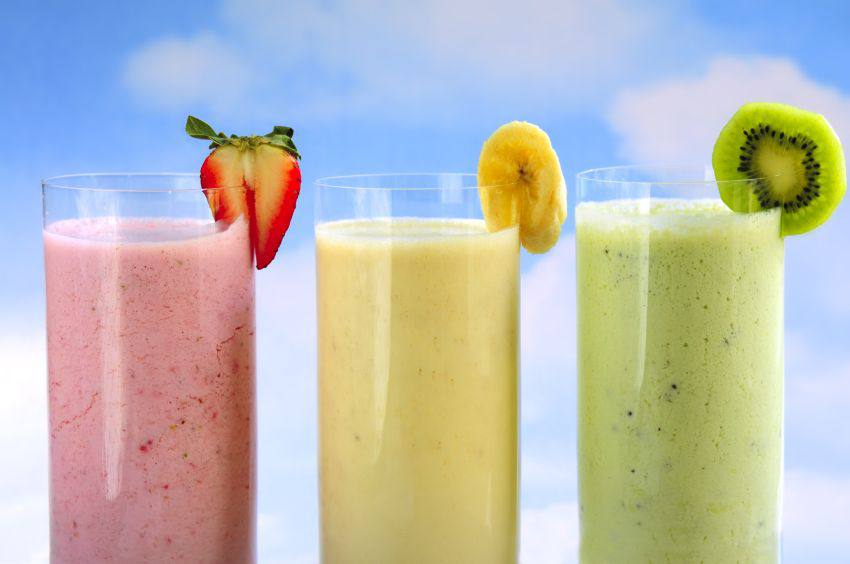Why our customers prefer Blue Cross
- Option of getting insured without a medical exam
- Excellent rates
- Pioneer in the field of health insurance with over 80 years of experience
- Friendly service from experienced agents who can answer your questions and assist you when needed
- Coverage that can be customized to meet your specific needs
- Discounts and savings with our one-of-a-kind Blue Advantage program

Protein shakes: Choosing healthy protein supplements
Published on: January 9, 2015
While many people assume that going to the gym and becoming more active will help them achieve an athletic body, the truth is that eating healthily is just as important as your workout regime.
As they say, you can't out-train a poor diet. No matter how hard you work at the gym, you will not see the results you want until you get your diet right. One of the most talked about health foods is protein. We hear about the importance of protein all the time. People often talk about their protein shakes at the gym, and there are many protein shakes, bars and powders on the shelves of most food stores. But are protein shakes healthy? Do you need them?
The benefits of including a protein shake in your diet
Protein shakes have become extremely popular. They are no longer a drink reserved only for bodybuilders and serious athletes. Today, they are consumed by teens, moms, dads and just about everyone who goes to the gym regularly.
Consuming protein shakes is marketed as being beneficial for a number of reasons, including:
- They are a quick and convenient source of protein
- They can be mixed with a variety of liquids, including water, milk or fruit juice
- They provide faster-absorbing protein for post-workout nutrition
- They can help reduce hunger
- They provide the extra protein needed to build muscle
- They are a good meal replacement option for people who are always on the go
- They are an alternative protein source for people on vegetarian and vegan diets
Their popularity has also led to the rise of countless protein options. There are protein shakes, bars and gels, and they are available in any flavour you can imagine. However, not all protein products are created equal. Just as with many other consumer goods, many protein options are now mass-produced, and consumers should be aware of what they may be purchasing.
Watch what you put in your shake
It’s easy to turn a healthy protein shake into simply a milkshake with protein in it. Adding too many unnecessary items can significantly increase the number of calories, carbohydrates and sugar in your shake. In addition to a high-quality protein powder, the following things can be added to a shake to keep it healthy and nutritious:
- Water, skim milk or almond milk
- Berries and bananas
- Low-fat Greek yogurt
- Peanut butter
When you consume protein shakes is important. As a general rule, the best time to have a shake is immediately following a workout. Having a shake for breakfast is also advantageous as it is a quick and easy way to get some protein in the morning.
Choose high-quality protein options
Including a protein shake in your diet is beneficial, but the key is to choose a high-quality option.
When you are choosing a protein shake or supplement, it’s important to make note of the following:
- “Mass gainers”: Some protein options are mass gainers, which have higher levels of carbohydrates, fats and calories. They are intended for people who want to gain weight.
- Sugar levels: Keep an eye on the amount of sugar that is included. Many brands now add sugar to make protein powders taste better.
- Other ingredients: Choose a protein powder that is as simple as possible. The fewer ingredients and additives, the better. It’s also important to make sure the powder does not include any ingredients that you are allergic to.
- Type of protein: Make sure you are aware of the type of protein you are purchasing, especially if you’re on a vegetarian or vegan diet. Options include whey, casein and vegetable proteins made from rice and soy beans.
- Cost: The price of the protein does not always indicate the quality. The highest-priced option is not necessarily the best. Most proteins have similar ingredients and blends. If you are trying something for the first time, buy the smallest container to ensure you like it.
Perhaps the most important thing to avoid when buying protein is buying into the hype. Nutrition supplements are a billion-dollar industry, and the products are marketed to perfection. Take the time to compare ingredients, talk to the people at the health food store and focus on buying protein powder that will help you achieve your fitness goals.